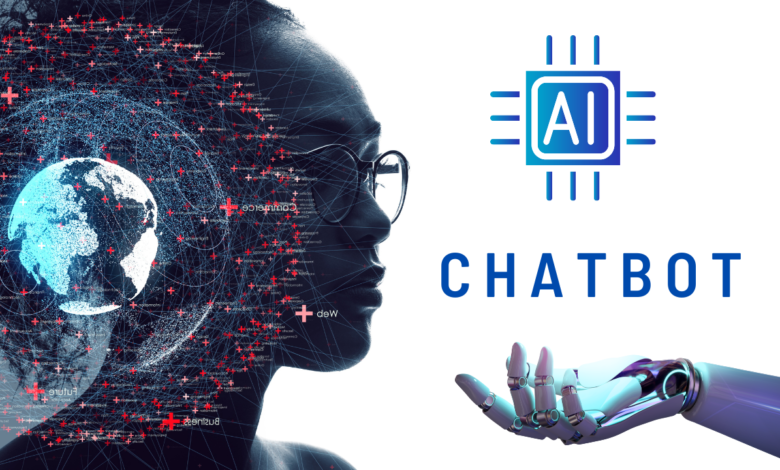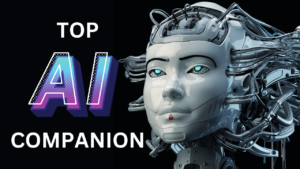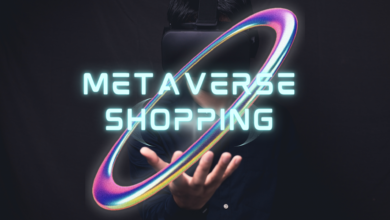Feeling Alone? AI Companions Could Provide the Support

The outbreak of the Covid-19 pandemic has contributed to chronic loneliness as many people were forced to stay isolated. During this, digital tools like video calling and social media help connect people who live or quarantine far apart. But what becomes even more popular is conversational artificial intelligence (AI) companions such as human-like social chatbots.
These chatbots are designed to be supportive and empathetic to provide companionship and support. These AI-driven chatbots leverage NLP (Natural Language Processing) and Machine Learning to understand human behavior, opening the door to a sophisticated level of human conversations that meets the needs of millions of people by providing them comfort and improving mental wellness.
Exploring the Advanced Technology Behind AI Companions
AI chatbots are powered by a combination of algorithms designed to simulate human conversation and respond to user input in a natural, appropriate, and helpful way.
These chatbots use Natural Language Processing (NLP), machine learning, and various algorithms to analyze and interpret large amounts of data and generate responses in human language.
Natural language processing (NLP) is a field of artificial intelligence that focuses on the interaction between computers and humans and helps generate human-like responses using natural language. NLP techniques analyze the user input to give an appropriate answer.
Machine learning algorithms allow chatbots to improve over time by getting trained on a large amount of data so that they can generate responses that are similar in style and tone to those written by humans.
There are different machine learning algorithms, but the most common ones used in chatbots are decision tree algorithms and neural networks.
Decision tree algorithms work by making a series of decisions based on the user input data until it reaches a point where it can make a decision based on the available data.
For example, a chatbot might use a decision tree algorithm to generate responses to customer inquiries by asking a series of questions about customer preferences and then providing a response based on the answers to those questions.
Neural networks are designed in such a way that it works and function like the human brain. These are a combination of interconnected neurons, which process and transmit information by getting trained on a large dataset of human responses to recognize patterns and make decisions based on that information.
To learn about a user’s personality, these chatbots rely on the data provided (explicitly and implicitly), which includes the information provided by the user.
AI chatbots are trained on data that includes information about different interests, values, and preferences, including language patterns associated with different personality types.
By analyzing large amounts of data and using different algorithms, chatbots can become more effective in recognizing different patterns of language or behavior and respond to individual users in a much more sophisticated manner.
From Siri to Sofia: A Look at the top AI Companions

From using AI assistants like Siri or Alexa for simple tasks to having a virtual AI companion to chat with them and overcome loneliness, we have come a long way.
Here are a few of the top AI companions that must try out:
- Cleverbot:
Created by Rollo Carpenter, Cleverbot is more like a quick-witted AI friend that gives funny, clever answers and can also tell jokes. It was one of the first chatbots and has become a popular AI companion to be used in a variety of applications, such as customer service and language learning. The fun part about Cleverbot is that it has been the subject of numerous online memes due to its occasional tendency of providing humorous responses. It has also been featured in various media outlets, including The New York Times and BBC News.
- Replika
Loved by over 10 million users, Replika is one of the most popular AI-powered personal companions programmed to converse in a natural human-like manner and can also recognize images and mimic the user’s style of communication over time. Moreover, it also supports voice calls, which makes it even more realistic. To provide companionship and support to the users, Replika is one of the best tools for self-exploration and personal growth or simply as a way to pass the time and have engaging conversations with artificial intelligence.
- Anima
A free AI companion that can be your friend and a partner both. With a gazillion features, you can chat, roleplay, and improve your communication skills with Anima. It comes up with different options, where you can play games, choose the avatar, set the name and pronouns, and adjust its personality traits.
- Mitsuku
An AI companion to deal with loneliness and offer an engaging conversational experience. With over 80 billion conversational logos, it can carry on intelligent conversations on different topics and is known as one of the best smart talking AI assistants. Mitsuku is available as a chatbot on several platforms, such as Facebook and Skype. Also, it has received recognition from Forbes, the BBC, and The Guardian.
- Elomia
Popularly known as an AI Therapist, Elomia is an emotional health companion powered by artificial intelligence that listens, understands, and provides moral support to help users transverse through anxiety, anger, and other psychological issues. Trained with over 22,000 text-based sessions conducted by 50 therapists over 2-years, Elomia can be your ideal therapist, like a friend who is always there for you.
Conclusion
Whether you are looking for a casual friend to kill time with or need someone to listen to, these AI chatbots work perfectly. These chatbots are trained on multiple datasets to understand human behavior and generate relevant conversations.
It is possible to develop a connection with chatbots, but in the end, we need to understand that chatbots are not humans. So, they do not have the same emotional capabilities. While they can help us by providing helpful information and answering our replies, they are not meant for having a deeper sense of connection or emotional support, nor do they understand or feel emotions like humans.



